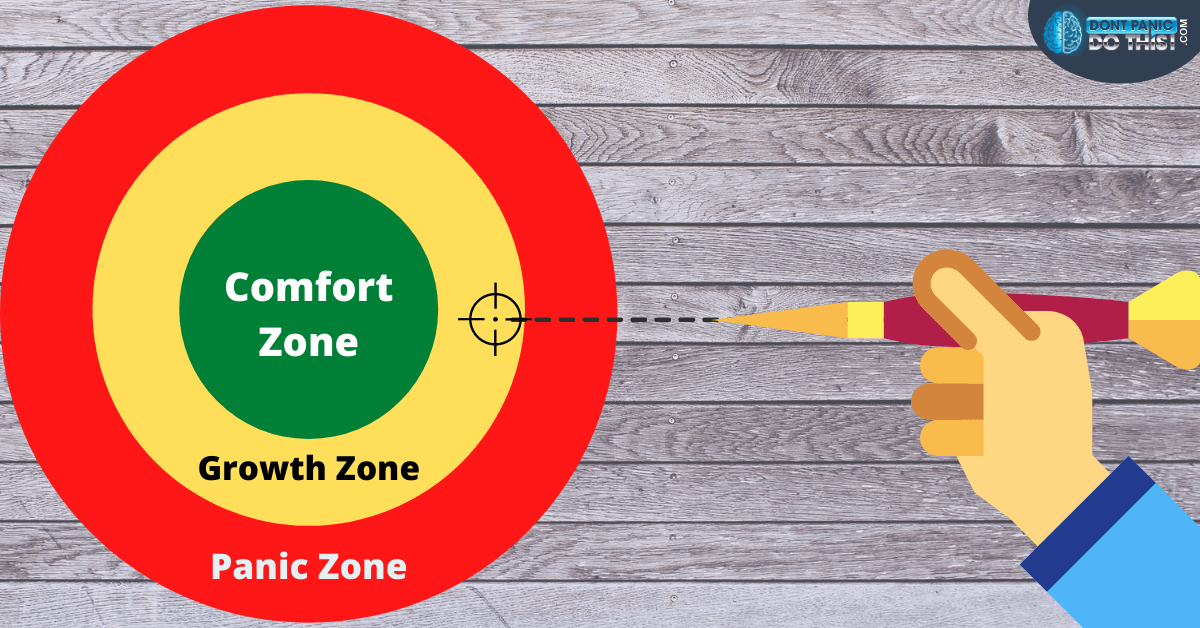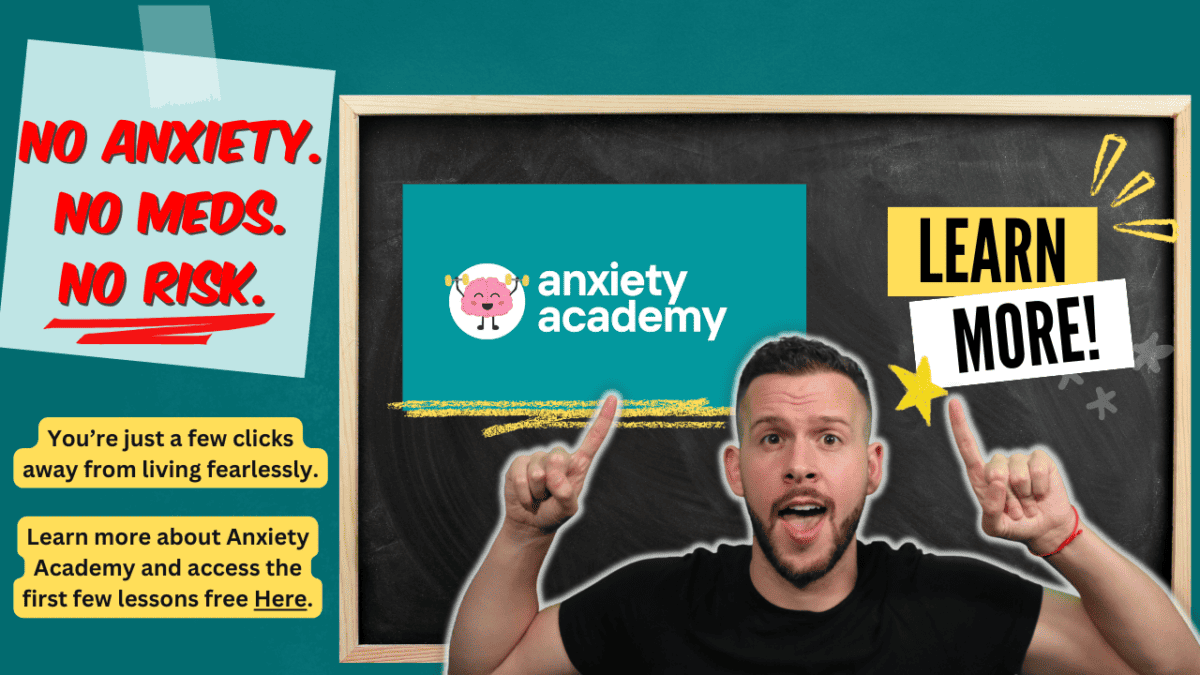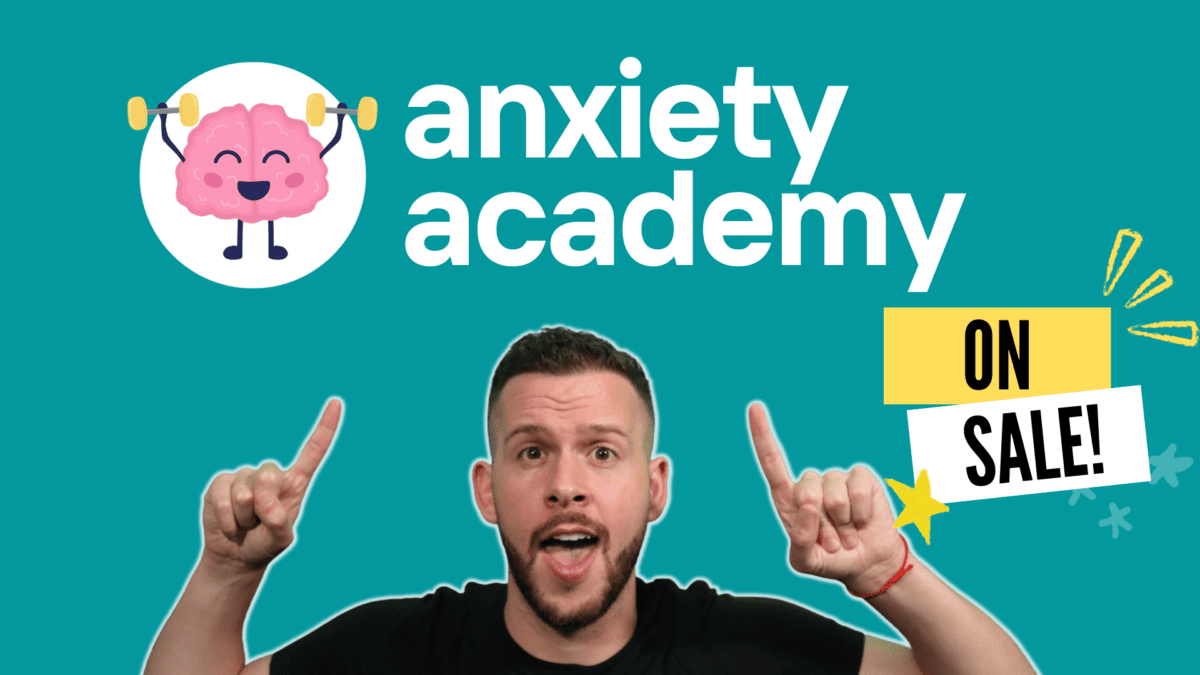Traveling is one of the most exciting and enriching things we can do to escape our daily routine. Unfortunately, as they tend to do, anxiety and panic attacks can get in the way of a good thing here. These tips will help you to minimize pre-travel anxiety and panic attacks while traveling:
- Work on Your Anxiety Before Traveling
- Choose a Destination that Excites You
- Learn the Basics of the Local Language and Culture
- Plan Your Trip and Activities in Advance
- Create a Backup Plan to Minimize Panic Attacks While Traveling
- Choose the Mode of Travel You’re Most Comfortable With
- Pack Anything You Might Need to Stay Calm and Positive
- Go with a More Experienced Friend
- Hire a Tour Guide if Needed
- Remind Yourself of Any Enjoyable Travels in The Past
- Practice Coping Mechanisms for Pre-Travel Anxiety and Panic Attacks
As a naturally anxious person who has traveled extensively, I assure you that travel anxiety can be easily managed.
Read through each of these steps carefully. By the end, you should be both comfortable and excited about your next trip!
Pre-Travel Anxiety and Panic Attacks While Traveling: 11 Tips
Symptoms of Pre-Travel Anxiety
The symptoms of pre-travel anxiety are the same symptoms experienced during anxiety in general:
- Nervousness or irritability
- Sense of impending doom
- The feeling that something “‘bad” is going to happen
- Increased pulse rate or irregular heartbeat
- Irregular breathing or hyperventilation
- Shaking or trembling
- Difficulty concentrating or feeling “off”
- Insomnia
- Gastrointestinal issues
- Sweating
The key difference with pre-travel anxiety is that it specifically occurs before traveling, or whenever one thinks about traveling. In some cases, travel anxiety may be severe enough to bring about panic attacks. Panic attacks are short-lasting but extreme anxiety events.
What Causes it?
There are many reasons why a person might experience pre-travel anxiety or panic attacks while traveling.
Some of these reasons may include:
- Fear of the unknown
- Concerns about money
- Worries about getting lost
- Risk of getting sick or injured while away from home
- Any other variables related to travel
While these are all valid concerns, there are many ways to mitigate these risks.
Let’s dive right in!
Work on Your Anxiety Before Traveling
Regardless of what kind of anxiety you may suffer from, it’s important to take steps toward managing it appropriately. If you’re totally new to anxiety and don’t know how it works or how to decrease it, I recommend starting here.
This is the best way to be caught up to speed on the basics of anxiety, including:
- What anxiety is and why we experience it
- Lifestyle changes to decrease the frequency and intensity of anxiety
- Recommended products (supplements, books, etc.) to help with anxiety
- Exposure therapy to help you gradually eliminate any fear or phobia
These pages are all general in scope, not specifically tailored for travel anxiety.
Nonetheless, working your way through these materials is the best way to get started on your journey to beating anxiety.
Once that’s out of the way, the remaining steps in this article will be much easier to tackle.
Choose a Destination that Excites You
One of the best ways to manage travel anxiety is to remember the light at the end of the tunnel. After all, nothing is technically stopping you from not traveling. You’re making this choice to step outside of your comfort zone because it’s something that you want to do.
Traveling, both domestically and internationally, helps you to see the world in a new light. You get to experience the landscapes, cuisine, and culture of an entirely new region. Few things in life are as rewarding or inspiring as travel. Remind yourself of this fact frequently as you plan your trip. Surely a bit of discomfort is a small price to pay for such an incredible experience.
This makes it all the more important that you choose a destination that truly excites you. Are you looking for a relaxing vacation, or a rough-and-tumble adventure? Are you hoping to try new foods, take up a new hobby like surfing, practice a new language, make new friends?
We all travel for different reasons. It’s important to determine your “why.”
Remember why you are traveling in the first place. Choose a destination that truly excites you, and write down all the reasons you want to go there. When anxiety tries to plant seeds of doubt in your mind, go back to this list and remember your why.
Learn the Basics of the Local Language and Culture
For many people, their main source of pre-travel anxiety is their fear of the unknown. If you’re traveling internationally, you may not know the local language and culture.
For inexperienced travelers, the thought of going to a country that speaks another language might be too much. If that’s the case, no worries – You can always start with domestic travel. Alternatively, you could start with a country that speaks the same language as your own country. The first country I visited was Australia (from the U.S.). It was different enough that I had to be a bit more careful crossing the street, (different driving patterns) but at least I had the language down. This gave me the confidence to later visit more exotic countries.
You may also wish to visit a country that’s significantly different from your home country. In this case, it can be helpful to learn the basics of the local language and culture. If you’re just passing through for a few days or weeks, the basics (“please,” “thank you,” etc.) should suffice. You can learn more if you’d like, but most tourist areas are chock full of English-speaking locals. As long as you’re not planning on venturing solo into rural areas, you should never be far from someone who speaks your language and can help.
Plan Your Trip and Activities in Advance
There’s no way around it, traveling can be chaotic. For some, this kind of chaos could cause pre-travel anxiety and panic attacks while traveling. If you’re the type of person who likes structure, you should plan your daily activities in advance.
Personally, despite my past anxiety issues, I’ve always thrived a bit in chaos. I’m the type of traveler who can land in a new country with nothing but a backpack and a dream. For most people, however, the idea of traveling like this could be quite stressful.
Take some time to plan your trip in advance. Do you have:
- Somewhere to stay? (Airbnb, hostels, hotels, apartment rental)
- Transportation? (Ride share, taxi, rental car, friend)
- Money? (International credit card, local currency)
- Phone Service? (International program, local SIM card, Wi-Fi service)
- International Health Insurance? (Can be found pretty cheaply online)
- Plans? (Daily itinerary, tour guide, group activities)
These are all things than can be figured out on the fly if need be – So don’t stress out too much if there’s a hitch in your plans.
For the most part, however, you’d do well to have these figured out before you arrive. This can minimize any pre-travel anxiety you could otherwise experience.
Create a Backup Plan to Minimize Panic Attacks While Traveling
While it’s great to plan your trip in advance as much as possible, things don’t always work out the way we expect. To avoid any panic attacks while traveling, it’s a good idea to have a backup plan in case things change on us.
Some factors you may want to consider include:
Money – It can be a good idea to exchange some money for the local currency before you even arrive. This gives you some flexibility in case you arrive late at night and no one accepts card or foreign cash for food, transportation, etc. It may also be a good idea to travel with a debit card (to take out cash) and several credit cards. I’m actually writing this from Costa Rica, where I had to cancel a credit card due to a fraud alert last week – boy am I glad I brought a backup.
Getting Lost – Getting lost somewhere foreign to us can certainly cause some panic attacks while traveling. Be sure to keep a map and the address of your hotel saved on your phone in case you lose cell service. It’s also a good idea to keep a physical map that shows your hotel on hand, in case your phone dies. This way, no matter where you get lost, a cab driver can get you home.
Getting Sick – It’s always possible to get sick while away from home. Be sure to know the local number for medical attention. Also, take some time to purchase a short-term international health insurance policy (don’t worry, they’re pretty cheap). Be sure you have any required medication packed before your trip.
Communication – Speak with your cell service provider before going abroad to see what their foreign rates are. My own cell service offers international data plans at about $10/day. This can be great if I’m traveling for a weekend, but it’s a brutal rate if I’ll be gone for a month or two. It can be more cost effective (but slightly more work) to get a local SIM card. Alternatively, you can skip the cell service altogether and rely on Wi-Fi (as I’m currently doing in Costa Rica).
Backup Plans – Less urgent than the rest, but sometimes our daily plans fall through. This may not be a big deal, or it could be a real bummer if you’re only abroad for a short while. You may wish to keep some backup plans handy (i.e., alternative activities) in case your first plan falls through.
Choose the Mode of Travel You’re Most Comfortable With
For some people, the primary source of their travel anxiety is the mode of travel. Many people with aerophobia fear getting on a plane. Others, with thalassophobia, may fear the ocean and be unable to get on a cruise ship. If your pre-travel anxiety is limited to a certain mode of travel, this is something you’ll need to consider in your plans.
If there’s a mode of transport you’re comfortable with, you may wish to travel that way. Of course, that may not be practical or possible for every destination. For help with a specific mode of travel, you may wish to check out these resources:
Generally, I recommend taking steps outside your comfort zone whenever possible. This kind of exposure to our fears is exactly what helps us to beat them back over time. If you’re feeling motivated, albeit a bit nervous, to tackle a fear of flying or driving, I highly recommend checking out those articles. They’ll help you to address your fears at a comfortable pace.

Pack Anything You Might Need to Stay Calm and Positive
Nothing’s worse for travel anxiety than arriving at your destination and realizing that you forgot something important. For the most part, these things can always be purchased at your destination, so don’t stress too much. But, to save yourself some headaches (and some cash), here are some important items to consider. Be sure to pack most of them before the day of your trip, to assure you don’t miss anything while rushing:
- Local Power Adapter – Easy to forget; necessary in many countries to convert power from the local outlets to your devices. This is the exact one I use; it hasn't disappointed me yet.
- Headphones – Nothing’s worse than being stuck on a plane, train, or bus, without a pair of compatible headphones. This is doubly important if you listen to music, podcasts, audiobooks, or guided meditations to decrease anxiety.
- Books – Traveling offers many great opportunities to catch up on your reading. It’s also a great plan B to help you pass time if a planned activity falls through.
- Toiletries – Things like your toothbrush, mini toothpaste, nail clippers, deodorant, etc. You’ll be able to buy any of these things at your destination if necessary.
- Clothes – I usually pack light here since I like to do some local shopping. Still, lots of socks and underwear are always a good thing.
Go with a More Experienced Friend
Sometimes I like to travel alone; it can be an incredibly freeing and independent experience. However, for the most part, traveling feels a lot safer, more secure, and fun, with a friend. You should never feel the need to face your fears alone, especially if a friend can help decrease your pre-travel anxiety.
The second and third countries I ever visited were Thailand and India, respectively. Both countries are incredibly different from my home country of the United States. Fortunately, I got to travel to both of these countries with a group of close friends. Learning how to travel along with more experienced friends helped me build the confidence to later travel solo.
Best of all, in India, we were actually visiting a friend who lived locally. This granted us even greater confidence and security, being with someone who knew the culture and language. Despite how different India was from my own country, I felt confident the whole time alongside my friends.
If you’re new to travel and worried about travel anxiety or panic attacks while traveling, consider traveling with a friend. It can add a fun dynamic to the experience. This will also lay the groundwork for you to be confident enough to travel alone (if desired) in the future.
Hire a Tour Guide if Needed
I have very rarely hired a tour guide myself while traveling, but it can certainly be helpful. As I mentioned in the previous section, I was lucky enough to have my friend show me around India. This greatly improved my experience in a way that I doubt I’d have come close to without his guidance. Local guides are also available in most cities and can help in the following ways:
- Explore a city with someone who knows it well and can get around efficiently
- Access to local expertise, local history, and a translator
- A degree of protection from local scams and tourist traps
- You may be part of a tour group where you meet new friends
The only real downside to hiring a tour guide or joining a tour group is the cost. Even so, in many countries, this cost is often not so bad. One could also argue that you get stuck in the “touristy” areas this way, but someone with travel anxiety may prefer this. Regardless, you can always ask the tour guide where the locals eat, party, etc. and check it out afterward.
Remind Yourself of Any Enjoyable Travels in The Past
Pre-travel anxiety and panic attacks while traveling can really sweep the positivity out from under you. If this seems to be happening, try and remind yourself of any enjoyable travels you’ve had in the past.
Have you gone anywhere before and just had an absolutely incredible experience free of anxiety? If so, try and latch onto this feeling and remember it when the going gets rough.
If not, that’s cool too. Just remember why you’re doing this in the first place.
Also, how exciting – you’re getting to travel for the very first time! I envy you.
Practice Coping Mechanisms for Pre-Travel Anxiety and Panic Attacks
Sometimes we do our absolute best to decrease our pre-travel anxiety and it’s just not enough. No one is immune from experiencing travel anxiety or having panic attacks while traveling. The good news is that we can stop these panic attacks while abroad the same way we’d stop any panic attack.
Before your trip, take the time to learn some anxiety and panic attack coping mechanisms. (I highly recommend checking out that full article).
For now, I’ll give you two of my favorites.
- Mindfulness meditation: This involves sitting in a peaceful setting and letting your thoughts go blank. Alternatively, you may focus on a focus object (a repetitive sound, mantra, visual object, etc.). Thoughts will come into your mind. Acknowledge them, let them pass, and return your focus. Do this for at least one minute (although longer is better… 10 minutes would be great!). If it seems strange at first, keep practicing. Like any exercise, it will make more sense and become easier with time. The end goal is the ability to reel your focus into your center whenever anxious thoughts take hold.
- 478 breathing: This is a breathing technique for anxiety that helps us to trigger the relaxation response of our brain. Simply breathe in for 4 seconds through the nose, hold for 7 seconds, and exhale for 8 seconds through the mouth. This is a great way to quickly stop hyperventilating and relax. Feel free to check out the full article on 478 breathing for tips on doing this and why it works.
Having a few of these techniques up your sleeve will help you to stop any travel anxiety or panic attacks while traveling. Feel free to check out the rest of our tips and tricks; the more you know the better.
Happy travels!


